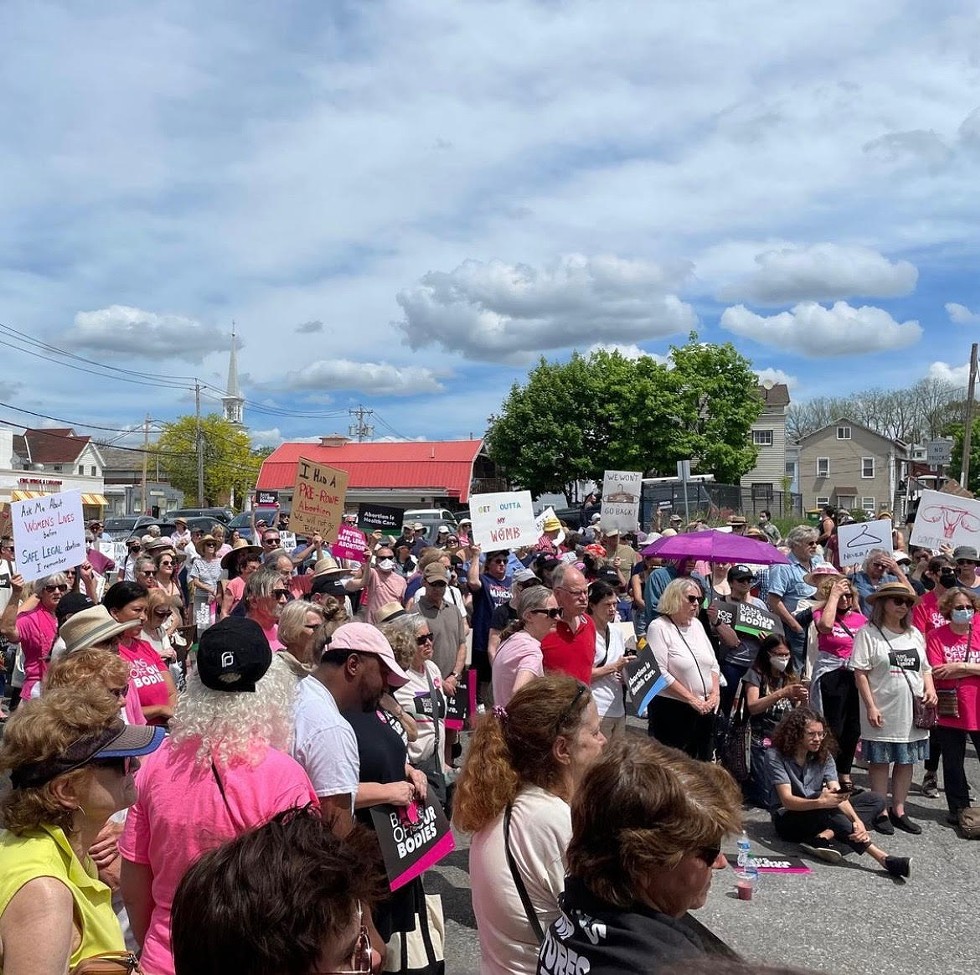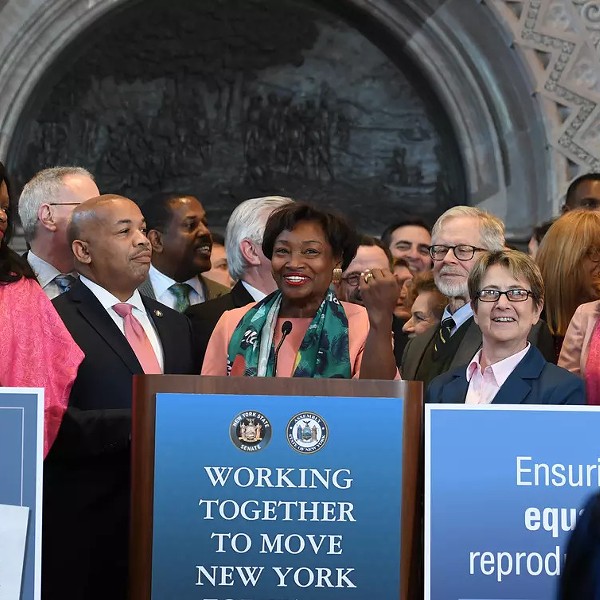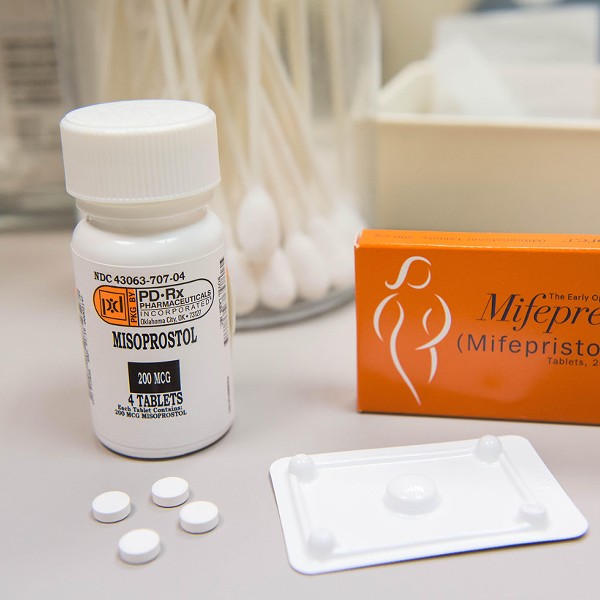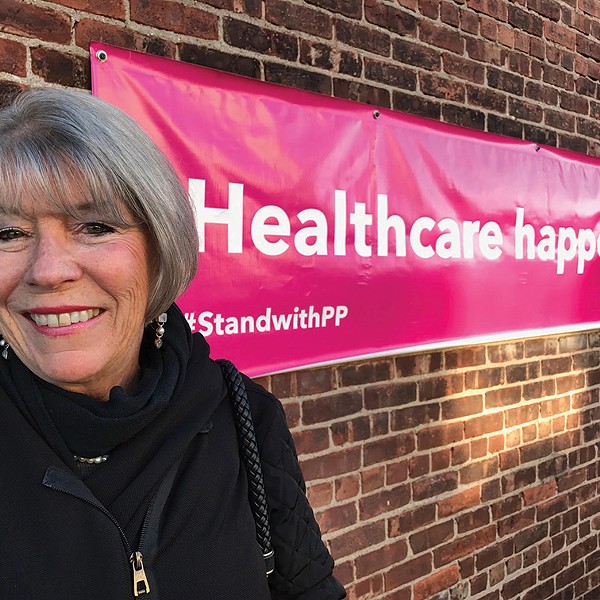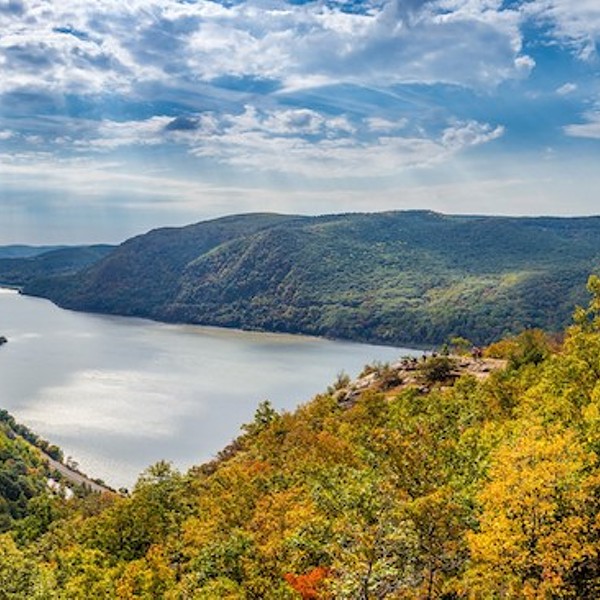These are bleak times for reproductive rights. By now, most Americans are aware of the Supreme Court’s leaked draft opinion from Dobbs v. Jackson Women’s Health Organization, a Mississippi case currently before the 6–3 conservative-leaning court. The draft opinion forecasts what many abortion advocates around the country have been warning: Roe v. Wade is likely to be overturned, reversing a half-century of legal precedent and effectively removing the constitutional right to an abortion.
New York saw it coming and, as a backstop protection, passed the Reproductive Health Act (RHA) in 2019, codifying the Supreme Court’s 1973 Roe decision in the state constitution. The statewide legal protection guarantees the right to an abortion within 24 weeks of pregnancy (or through the full duration of pregnancy if the health or life of the pregnant person is at risk, or if there are fetal indicators). After years of effort from abortion rights advocates, then-Governor Andrew Cuomo signed the RHA during a Trump presidency that appointed three new conservative justices to the high court.
US public policy has historically ignored the fact that abortion is a common and popular healthcare procedure. Six in 10 Americans support Roe’s right to end a pregnancy in all cases, and according to research from the Guttmacher Institute, nearly a quarter of women seek abortion care at some point in their lives. Yet many states in the US have been working to politicize abortion and erode access for decades, placing burdens on patients and providers alike, and proactively alienating it as a separate medical service outside the health insurance system.
The current uptick of brazen restrictions is startling: More than 1,300 abortion restrictions have been enacted since the Roe decision almost 50 years ago, and 2021 was the worst year on record, with more than 100 restrictions passed in a single year. A 2021 Texas law banned abortion procedures after just six weeks (when many people don’t yet know they’re pregnant) and deputized citizens to enforce it. Florida’s 15-week ban was signed into law in April of this year, and in May, Oklahoma became the first US state to outright ban abortion post-Roe. Thirteen states have so-called trigger provisions that institute bans if Roe falls, and others have bills reducing access.
“Most Americans, even in these red states, were not looking to overturn Roe v. Wade,” says New York State Senator Liz Krueger, sponsor of the RHA alongside fellow Manhattan colleague and Assembly member Deborah Glick.
At this pivotal moment, New York’s Democratic lawmakers and reproductive rights activists are mobilizing urgently to ensure that abortion will remain accessible here for anyone who needs one, whether or not they’re a resident. But will these efforts be enough to keep abortion where it belongs in the continuum of health care? And can New York successfully serve as a refuge state for abortion if Roe falls?
Protecting Patients and Providers Alike
According to abortion advocacy groups, the Reproductive Health Act was a vital first step, but it didn’t go far enough to protect New Yorkers from the unnecessary barriers they face when trying to access reproductive health care. Uninsured and underinsured people often fall through the cracks of affordability, and while the RHA permits more healthcare professionals to perform abortions than ever before, there is a shortage of providers statewide. If Roe falls, the Guttmacher Institute projects that New York could become the closest abortion care destination for anywhere between 190,000 to 280,000 pregnant people living in states that ban abortion. Suddenly, ensuring and expanding affordable access is a top priority here.
“New York needs to step forward as a national leader and actively protect pregnant people across all pregnancy outcomes,” asserts a coalition of reproductive health and justice organizations in a set of recommendations called the Abortion Access Roadmap. One of the coalition’s recommendations is to enact Senator Krueger’s new Equality Amendment bill, which would amend the state constitution to include proactive protections that clarify once and for all that discrimination based on a person’s pregnancy or pregnancy outcome is sex discrimination.
The Equality Amendment bill is ambitious in that it seeks to protect not only abortion patients’ rights, but equal rights in regard to disability, race, origin, gender, sexual orientation, and more. Unfortunately, the bill stalled out and didn’t move forward with agreed-upon language from all stakeholders before the end of the 2022 legislative session in June. “[We] want to make sure that one set of people’s protections and rights doesn’t supersede and violate someone else’s rights, and the place we hit a blockade is actually religious freedom,” Senator Krueger says of the delay.
Six other “starting-off point” bills Senator Krueger and her colleagues did recently pass insulate New York’s abortion providers and patients from various post-Roe threats. Medical malpractice and licensure issues for performing abortion care to non-residents will now be stymied. Practitioners won’t have to fear being extradited to another state to face abortion-related charges once their patients return to their home states, and there are more safeguards if they’re pursued by out-of-state lawsuits or bounty hunters.
“Maybe [hostile states] won’t send the Sheriffs to try to arrest people in New York State because we’ve passed these new laws, but we don’t know how many extremist advocates from those states might show up to protest or to try to disrupt,” says Krueger. “Since states [such as Texas] are paying bounties, it’s [possible that] undeclared bounty hunters will be showing up trying to kidnap patients or providers from the [health care] sites.” Krueger freely acknowledges how paranoid she sounds while insisting that scenarios like this are likely.
“We really need to be quite worried about how we are protecting folks from the other state laws, but also…trying to protect ourselves from a hostile federal government and hostile Supreme Court,” Krueger says. “If we get an all anti-choice Congress even by the next election cycle where everything goes red, they could pass a national ban on abortion, and our state laws wouldn’t protect us at all.”
An Influx of Funds
To combat the current assault on reproductive health care, Governor Kathy Hochul recently announced $35 million in abortion funding—$25 million going toward the New York State Department of Health to create a fund that expands capacity and shores up access, and $10 million for security grants through the Division of Criminal Justice Services that will go toward fortifying the physical security and legal protections of abortion providers who treat non-residents. Advocates assert that even more funding is needed, especially as abortion clinics were hemorrhaging staff early in the pandemic, often to larger, better-paying hospital systems. In turn, safety-net clinics were forced to reduce their hours.
“We are taking the necessary steps to expand our services and enhance the quality of care our patients know and deserve—including increasing medication abortion and in-clinic abortion appointment availability by 20 percent,” says Jacquelyn Marrero, vice president of communications and marketing at Planned Parenthood of Greater New York (PPGNY), which serves more than 20 health centers around 65 percent of the state.
Donor-supported abortion funds like The National Network of Abortion Funds provide a critical safety net for people who might otherwise struggle to pay for reproductive health care by helping to remove financial and logistical barriers. Its network of local, autonomous organizations have decades of experience working with clinics to help pay for abortions and offer supportive services directly to abortion-seekers who have to travel to receive care, like lodging, transportation, childcare, and translation services.
“The brunt of the health and economic consequences of the pandemic fell on communities that were already forced to overcome insurmountable challenges—Black, Latinx, and Indigenous communities, families with low incomes, LGBTQ+ individuals, immigrants, and multiple identities pushed to the margins of society due to this country's long history with racism and discrimination,” says PPGNY’s Marrero. “These are the same types of communities that will be impacted by abortion bans in other states.”
Considering abortion is on the continuum of reproductive health care that also includes birth control methods like implants and tubal ligation, and miscarriage management procedures, expanding these services and knowing where they’re offered is vital for patients. Miscarriages and ectopic pregnancies can require immediate medical invention.
Unfortunately, some smaller upstate general hospitals that have historically provided abortion care have been forced to merge with religious hospitals and lose those services in order to survive financial struggles. In many cases, would-be patients in those communities aren’t aware until it’s too late. A proposed bill, sponsored by Hudson Valley state Senator Michelle Hinchey and Queens Assembly member Nily Rozic, will better publicize available services and help lawmakers get a more accurate sense of the reproductive healthcare landscape around the state.
• Read: What Abortion Prohibition Would Mean For New York
Reproductive Justice for All
For Newburgh resident Aura Lopez Zarate, who is involved in the reproductive freedom movement both through her job and in the community, the days following the leaked draft of the Dobbs opinion have been busy. Having prepared for this outcome over months of “educational programming like teach-ins, film screenings, and panel discussions” as an organizing manager for PPGNY, she’s now shifted to rapid response. Lopez Zarate has been working to get supporters to rallies including the “Bans Off Our Bodies” New York City event in May. She has been lobbying in Albany and facilitating phone and text banks to push for Krueger’s Equality Amendment in the state Capitol. And she’s continued collaborating with statewide and national partner organizations as well as local, BIPOC-led groups.
“This work has to be done through a sexual and reproductive justice lens,” insists Lopez Zarate. She encourages everyday folks eager to get involved in the abortion rights movement to do three things: (1) volunteer with their time to help push for legislation in Albany and remind other New Yorkers that abortion is still legal here, (2) donate to organizations that help people to directly access abortion care, and (3) follow the guidance of organizations anchored in the “reproductive justice” space and have been doing this work for decades. “They are led by and centering the people that [the fall of Roe] will impact the most,” she says.
Part of Lopez Zarate’s day-to-day work is making sure that supporters and volunteers are using inclusive language at rallies and centering people most impacted by abortion access issues—often communities of color, people who are already parents, and those under significant economic strain. Sometimes it means providing guidance on tactics to avoid. Some rally-goers, for example, have worn handmaids’ costumes from the popular Hulu show (based on the dystopian Margaret Atwood novel) The Handmaid’s Tale as a way to warn against a frightening future of forced birth. But for Black and indigenous women in the movement, those costumes represent an insensitive, non-hypothetical reminder of their communities’ and ancestors’ painful pasts.
This reality is not lost on Senator Krueger. In collaboration with colleagues in other blue states to game out and protect against worst-case abortion-law scenarios, she’s been studying the Fugitive Slave Act of 1850. This set of federal laws permitted slave owners and bounty hunters to seize and return enslaved individuals who had escaped to free states.
“We ended up in a civil war over this,” says Krueger. “What the hell are we walking ourselves into?”







